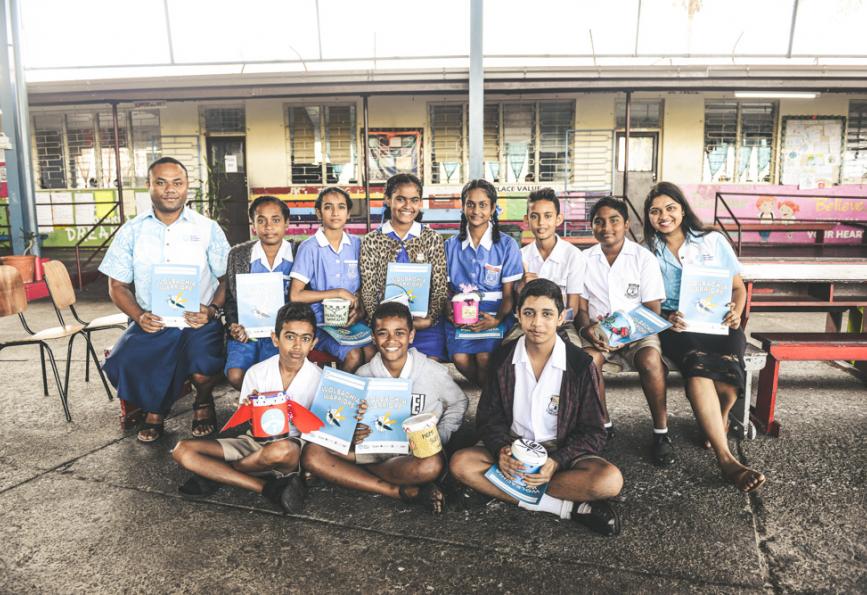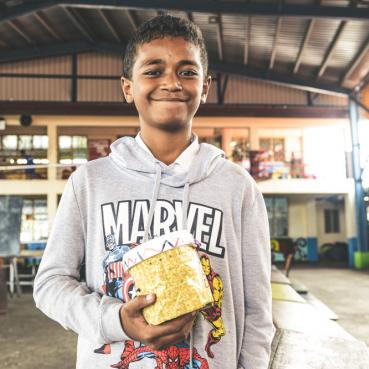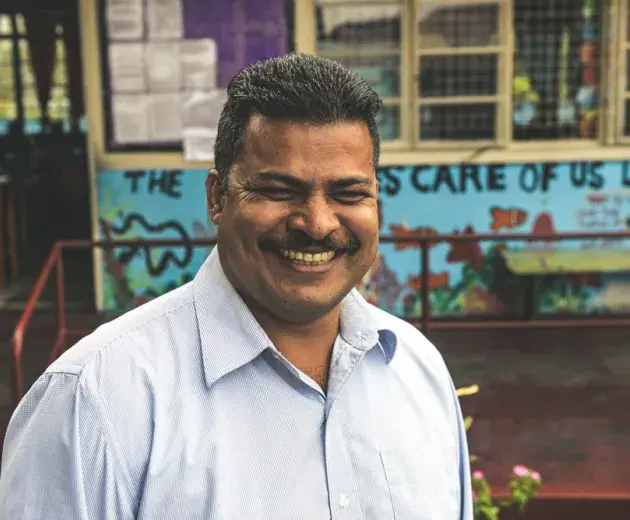
Published date: 05 Nov 2019
One of the ways the World Mosquito Program engages with communities worldwide is through the Wolbachia Warriors program. School students carry out research by rearing and releasing Wolbachia mosquitoes at home from their own hand-decorated buckets. This means they contribute to the establishment of Wolbachia in the local mosquito population, learn about science and teach their parents and siblings about the Wolbachia method.
In Fiji, Grade 8 students from Tamavua Primary School were enthusiastic about their time as Wolbachia Warriors in the past year. They were very careful to explain the Wolbachia method to their parents, brothers and sisters.

Each student received a special kit containing Wolbachia mosquito eggs and food, along with a project booklet and calendar to track the development of their mosquitoes. Students were also tasked with building and decorating their own mosquito release containers using old recycled containers.
Head Teacher Vimlesh Prakash has seen the effects of dengue on the school community and is one of the many community leaders who support the World Mosquito Program’s participatory approach. Because the intervention happens at the local community level, the World Mosquito Program, through its Public Acceptance Model, ensures that the wider community, local leaders and key stakeholders, are informed and broadly supportive.
“Many of our students have been affected by dengue and hospitalised. They can miss school for weeks and have to catch up on all of their lessons. When parents are sick, they may not be able to look after their kids properly at home,” said Mr Prakash.
One student, Nathan Lawevoso, explained that his friend and his uncle both suffered from dengue fever and were hospitalised.
“When my friend got dengue, he was really scared. We prayed for a miracle to save him. He spent two weeks inside the hospital. I visited him and tried to make him feel better. My uncle had dengue too and was in hospital.”


